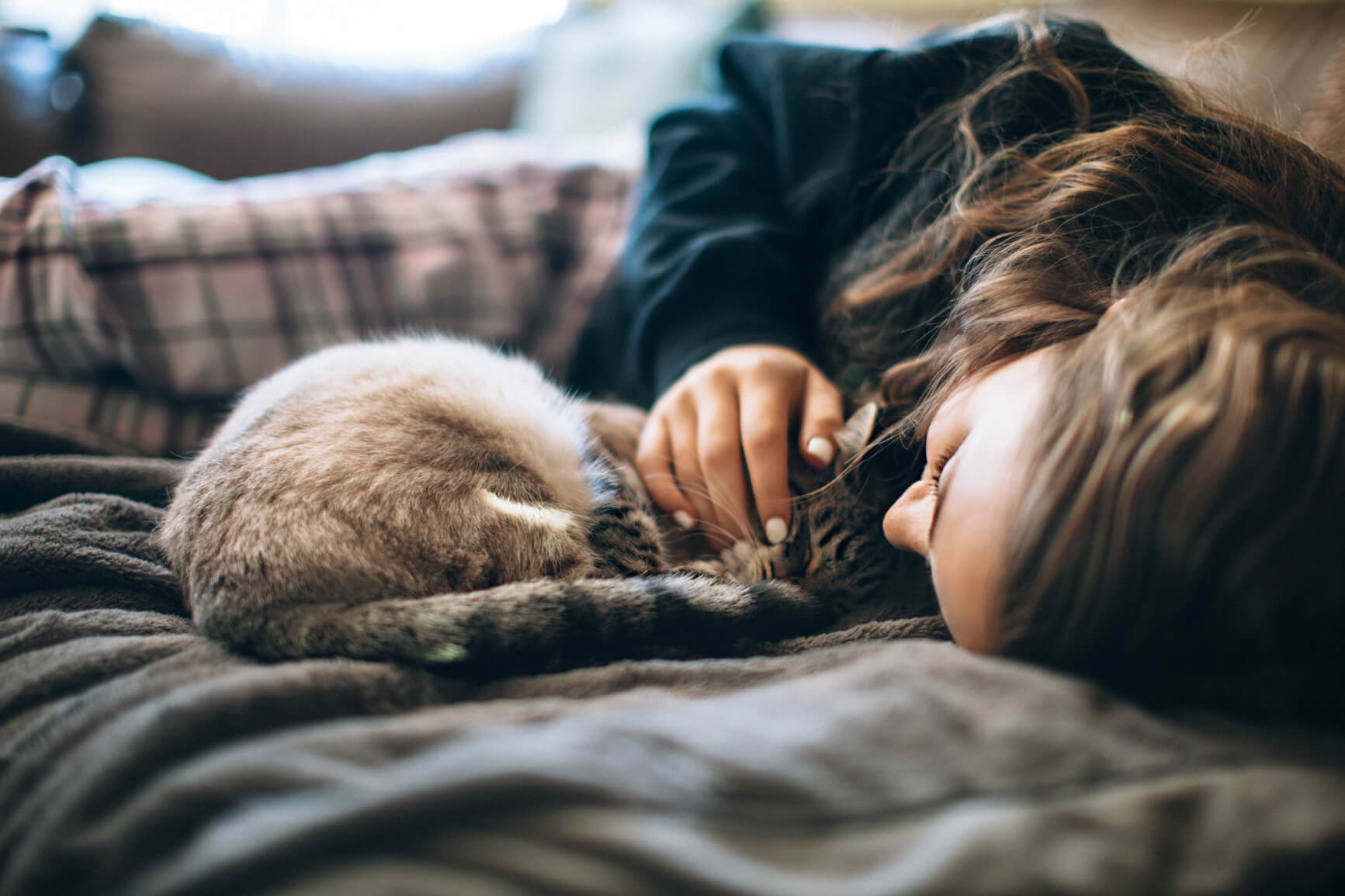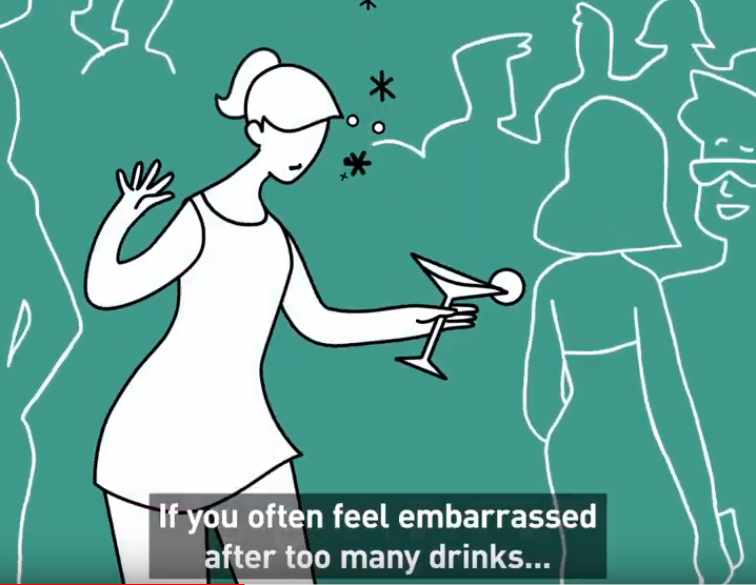-
Have you ever woken up after a big night out and felt a sense of dread about what you did or didn’t do the night before? And has this feeling stuck around, even if your headache and queasy stomach have faded? If so, you could be suffering from hangxiety.
What is hangxiety?
While hangxiety isn’t a formal term or diagnosis, many of us know the feeling. You wake up to the regular next-day effects of drinking, desperate for a big brekky and a cup of coffee, but with heightened feelings of shame and anxiousness thrown in. Your mind races as you frantically scroll through your text messages and social media, replaying what you can remember from the night before. Did I say anything embarrassing? Did I do anything stupid? What will my friends think of me? If this sounds familiar, you’ve probably experienced hangxiety.
Most people drink alcohol to relax, lessen their inhibitions, forget troubles, or simply for the taste. But when the initial effects of alcohol wear off, your body and brain may go into withdrawal, and you can become anxious, agitated, panicked, flat, unmotivated and moody. This is similar to what people who are dependent on alcohol experience, though much less intense. For some people these feelings are minor and fleeting, while others may struggle with intense emotions for longer.
Hangover + anxiety = hangxiety

-
Why does it happen?
Everyone has a delicate balance of chemicals in their brain. These chemicals have an effect on how you think, feel, and make decisions.
Alcohol changes this balance. It is a depressant, which means it decreases the effects of neurotransmitters that are responsible for exciting the brain and body. Alcohol also increases the effects of inhibitory neurotransmitters that have a sedative or calming effect, slowing down reaction times and decreasing coordination. This is why many people report feeling relaxed after a drink or two.
When your mind and body are hungover the day after drinking too much alcohol, the brain tries to fix this imbalance by overcompensating, which results in overactivity of the neurotransmitters that excite the brain and body, and under-activity of the neurotransmitters that help you relax.
Put simply, you could say it’s a matter of what goes up must come down.
-
Who does it affect?
If you’ve ever suffered from symptoms of hangxiety you’re not alone. It can affect anyone and is probably more common than you think. A Dutch study of 1400 students, published in Alcohol and Alcoholism, found that nearly half reported agitation the day after drinking. Others reported feelings of confusion, guilt and regret.
Hangxiety can happen sporadically, or every time you drink. Every person is different, and every night out is different. You drink different amounts, eat different foods and quantities, and you may take different medications.
If you already suffer from anxiety, or any other mental health problems, alcohol can worsen your symptoms. If you suffer social anxiety disorder, you may worry heavily about your behaviour while you were drunk; if you have general anxiety disorder you might struggle with sleep and feel extreme stress when the alcohol wears off.
Can you prevent it?
Obviously if you don’t drink alcohol you won’t experience hangxiety! But this may not be realistic. If you suffer from anxiety, or regularly experience the symptoms of hangxiety, consider cutting back on how much, and how often you drink.
When you do drink, consider taking this advice from Drinkwise to lessen the next-day effects of alcohol, including:- Setting yourself limits and sticking to them
- Alternate between alcoholic and non-alcoholic drinks
- Drink slowly
- Try drinks with a lower alcohol content
- Have something to eat while or before you have an alcoholic drink
- Dilute your alcoholic drink by adding water or ice
Also remember, if you’re taking any medications for your mental or physical health, alcohol and other drugs can reduce their effectiveness, and increase their side effects.
What to do
There’s no way to stop it straight away, but if you wake up feeling anxious and overwhelmed beyondblue recommend the following:
- Slow breathing - In for three, out for three; in for three, out for three
- Challenge your self-talk
- Try to take yourself out of your head and think rationally about your actions. It’s probably not as bad as you think.
- Exercise - Even though it’s probably the last thing you feel like doing, even going for a walk gets you up, active and out of the house.
If you find your hangxiety is regularly lasting longer than a day, or increasing in intensity, go and see a GP.
If you’re experiencing anxiety frequently, even if you haven’t been drinking, make sure to make an appointment with a GP. And to learn more about anxiety and the effects of alcohol, visit beyondblue.
If you think you or someone you know might have a problem with alcohol dependency, talk to your doctor, visit DrinkWise, or call your state/territory alcohol and drug helpline.
Want to know more about how alcohol and drugs really affect you? Read about the main health issues impacting young Aussies at medibank.com.au/adultish.
-
Coffee: How much is too much?
Caffeine can have a range of short & longterm health effects
-
Should you go to the doctor, or the hospital emergency department?
Should you go to the doctor, or the emergency department?
-
Preparing for your child's hospital stay
What to organise before your child's surgery
-
Questions to ask your child’s healthcare team
Important things to ask before surgery
-
Caring for your child after grommet surgery
Tips for a smooth recovery
-
Caring for your child after an adenoidectomy
Tips for a smooth recovery
Subscribe to receive the best from Live Better every week. Healthy recipes, exercise tips and activities, offers and promotions – everything to help you eat, move and feel better.
By clicking sign up I understand and agree to Medibank's privacy policy







